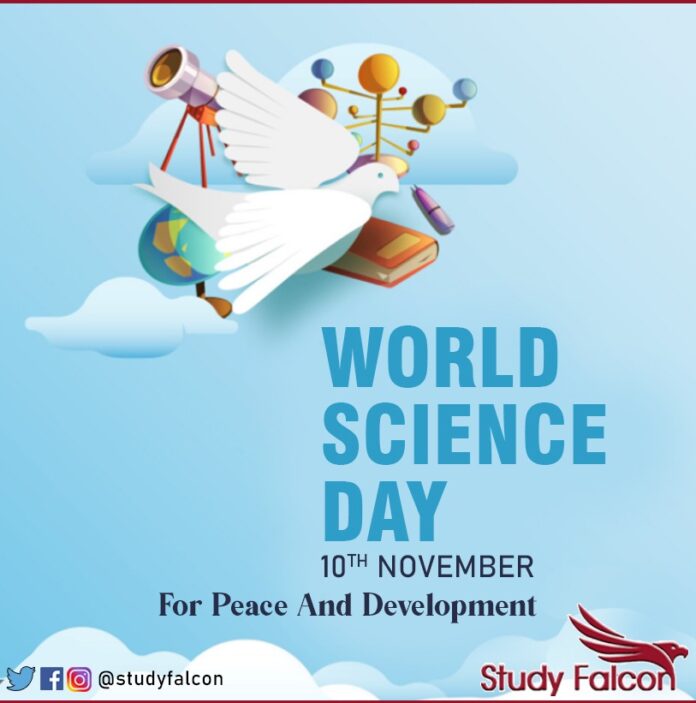Celebrated every 10 November, World Science Day for Peace and Development highlights the important role of science in society and the need to engage the wider public in debates on emerging scientific issues. It also underlines the importance and relevance of science in our daily lives.
The Day marks an occasion to mobilize all actors around the topic of science for peace and development – from government officials to the media to school pupils. By linking science more closely with society, science is made accessible to all and broadens our understanding of the remarkable, fragile planet we call home. It becomes also a more solid stepping-stone towards making our societies more sustainable. If we are to tackle the major challenges facing the world – such as the impacts of climate change, extreme poverty and diseases like Ebola, HIV/AIDS and malaria – scientists from different countries need to cooperate across borders. Scientists’ perspective should also be heard by decision-makers ad incorporated into global policy-making.
It was recommended at the World Conference on Science in Budapest in 1999 recognition was required for the need for a new compact between science and society. It was discussed at the conference that a World Science Day would help strengthen commitments to attain the Declaration on Science and the Use of Scientific Knowledge’s goals and to pursue the Science Agenda: Framework for Action’s recommendations.
World Science Day for Peace and Development aims to ensure that citizens are kept informed of developments in science. It also underscores the role scientists play in broadening our understanding of the remarkable, fragile planet we call home and in making our societies more sustainable.
Following the World Conference on Science, UNESCO established the World Science Day For Peace And Development through a proclamation at a general conference in 2001. This day was to be served a reminder of the organization’s mandate and commitment to science.
Some governments have, in the past, used World Science Day to publicly affirm their commitment to increased support for scientific initiatives that help society, as well as launch new science policy programs together with scientific institutions, civil society, universities and schools.
Various images promoting science and technology are seen in World Science Day posters. The UNESCO logo is also seen on promotional material associated with the day. The logo features the words “UNESCO” pictured as part of a temple building or structure. The words “United Nations Educational, Scientific and Cultural Organization” are presented underneath this image.
The annual observance of the International Week of Science and Peace is making an important contribution to the promotion of peace. The Week encourages greater academic exchanges on a subject of universal importance while also generating greater awareness of the relationship of science and peace among the general public. Based on observances of Science and Peace Week to date, it may be expected that participation each year will increase, contributing to greater international understanding and opportunities for co-operation in the applications of science for the promotion of peace throughout the year.
In 2020, at the time when the global COVID-19 pandemic further demonstrated the critical role of science in addressing global challenges, the focus of the World Science Day is on Science for and with Society. To celebrate the 2020 World Science Day, UNESCO will organize an online roundtable on the theme of “Science for and with Society in dealing with COVID-19”. Throughout this unprecedented heath and sanitary crisis, UNESCO has endeavoured to bring science closer to society and to bolster the critically needed international scientific collaborations. From the science perspective, UNESCO’s response to COVID-19 is structured around three major pillars: promoting international scientific cooperation, ensuring access to water and supporting ecological reconstruction.










